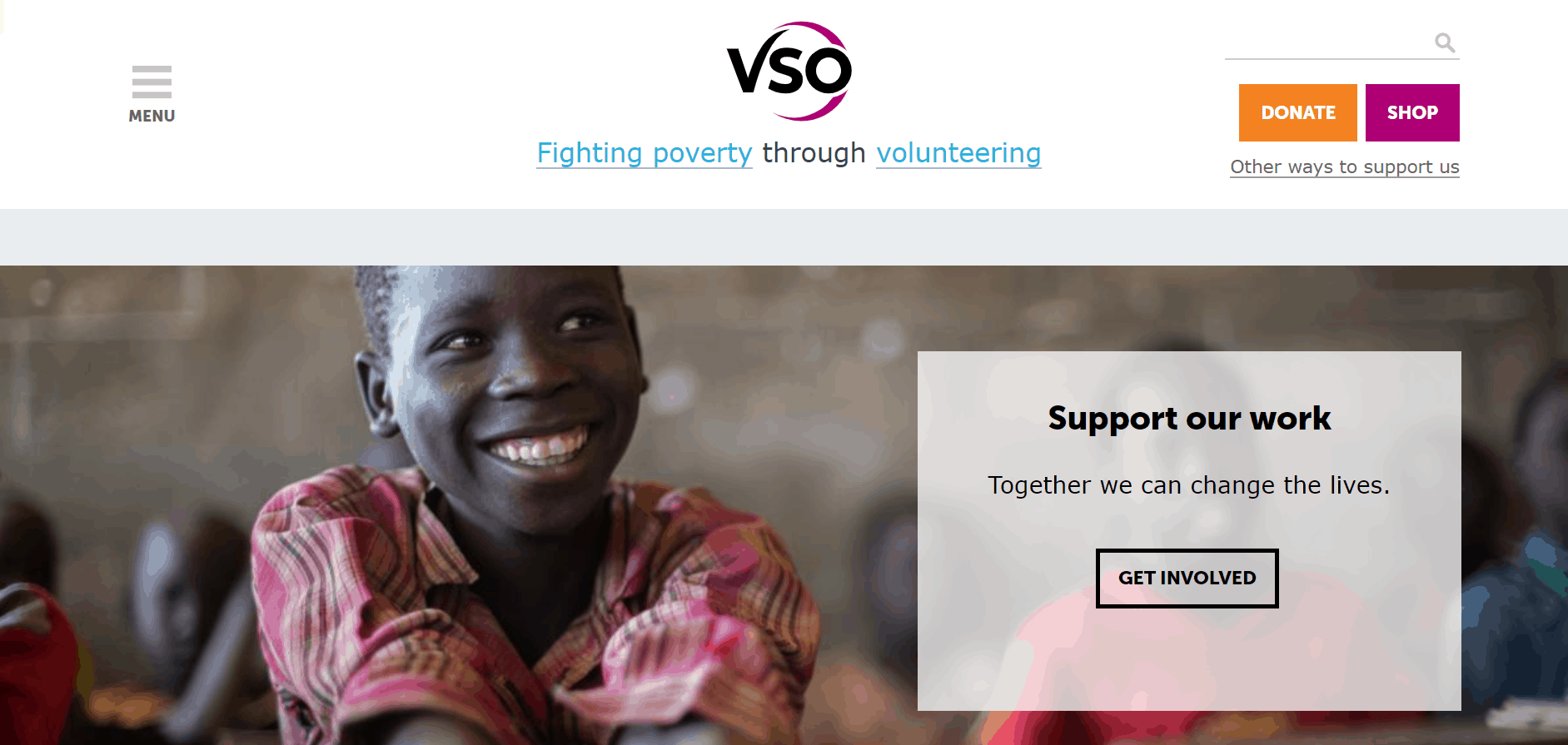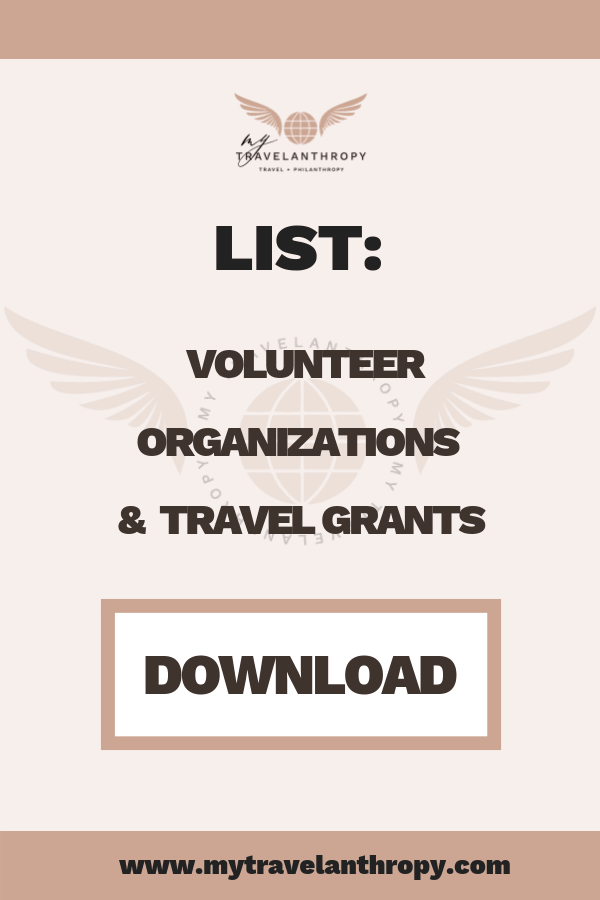
Photo: Trevi Fountain, Rome, Italy
If you are reading this right now, it means you’ve been searching for different ways to save on your travels or looking for ways to fund your travels abroad, or both! I’m here to tell you there are ways you can travel for FREE, make money, and even get paid! All you have to do is look in the right places and be willing to be flexible with your time and the way you travel.
Many of us love travelling, but most of us simply don’t have the funds to travel as much as we like for an extended period of time. After calculating the costs of taking some time off work (not everyone gets paid for vacation time), then prepping for travel like buying travel gear, getting the proper vaccinations, paying for visa fees, etc., then researching and budgeting for flights, accommodation, travel insurance, entertainment, food and even the Uber ride to the airport can quickly add up to be extremely costly; and you haven’t even left the country yet!
When I was working at my 9 to 5 job, I would save money just to travel twice a year for two weeks at a time (and even try to squeeze in short weekend trips), then fly back home, work, save, then hop on a plane to another destination the next time I had vacation time. I did this consistently, which left me financially drained and unfulfilled. I had to figure out a way to either support myself as I travelled the world, get paid doing it, or find a job that would allow me to work remotely all while chasing my passions and dreams. Sounds impossible, right? While it may seem like an unreachable dream, I’m here to tell you it is entirely possible!
Table of Contents
Without further ado, let’s get down to some of the best ways you can travel for FREE:
1. VOLUNTEER ABROAD
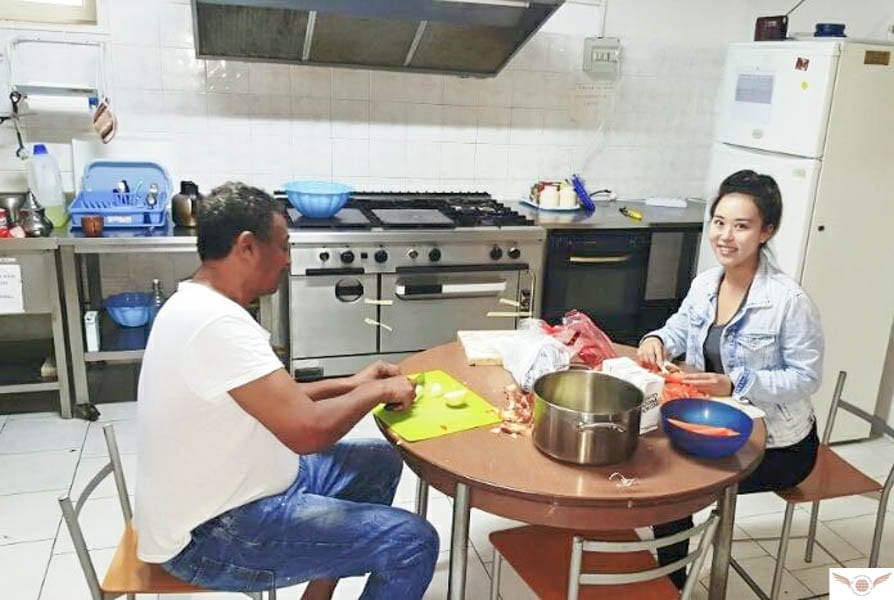
Volunteering abroad is a great way to learn about other cultures, help people in need, broaden your professional skills, and have a myriad of experiences you’d never get at home. The world is more connected than ever before, and spending time in other countries helps all of us gain a global perspective, which is valuable in every aspect of life.
Volunteering abroad is a much more comprehensive experience than just travelling through a country and seeing its sights. When you volunteer abroad, you get the opportunity to build genuine relationships with the community you’re serving, so you get more of a local authentic experience.
I’m a strong believer that everyone is born into this world with a special gift and everyone we meet in life is talented in some area of their life. We all have our strengths and unique skill-sets, so why not donate your time and knowledge in your area of expertise to organizations that need your help? Many social impact organizations and start-up companies simply do not have the resources in place to hire someone with your professional background, so they offer FREE travel expenses in exchange for your (usually) long-term work. In fact, according to research recently published by The United Nations, volunteers, especially those who are skill-based volunteers, play a major role in global development. This simply means you can help demolish one of the major barriers to progress, which is known as the “Talent Gap.”
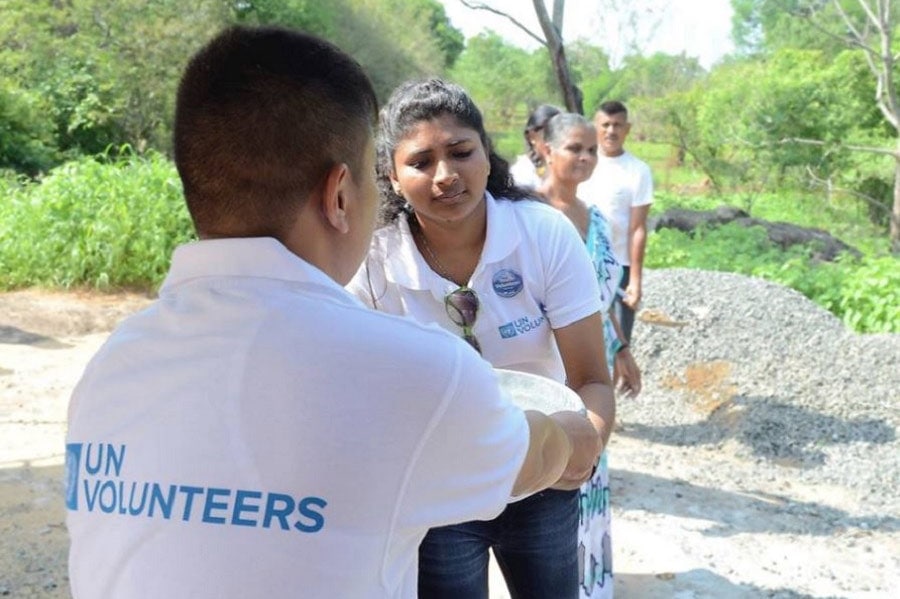
Photo Credit: UN Volunteers
Before I get into this further, I want to highlight the importance of ethical volunteering. Ethical volunteering does not take jobs away from the local communities in which the organizations are located. Instead, it integrates and works alongside the local community, and volunteers are brought in to help build a system, pass on their knowledge, and train the locals to help them sustain their long-term goals long after they are gone.
Ultimately, volunteering shouldn’t just be a way to travel for free. You should aim to add value to those you are helping. It’s important to pick a cause you are passionate about to truly make a real impact through your volunteer work abroad.

- There are two ways to find volunteer organizations abroad:
Take initiative, especially when it comes to finding volunteer opportunities abroad. You often have to research on your own and make a pitch to the organizations directly. Don’t just wait around for opportunities to be posted online, because most won’t be announced. Find organizations you feel passionate about that reflect your own personal values. Outline why and how you can apply your specialized skill-sets to contribute to the organization’s overall objectives and goals.
You may have to make a pitch for your idea directly to the decision-maker in whatever organization you’re applying to. Another good reason to contact the organization directly is that you can ask for referrals of people who’ve volunteered in the past. Contacting someone who already volunteered is a great way to get the inside information on a particular program you’re interested in from a volunteer’s perspective.
I strongly advise, especially if this is your first time, that you also look up well-recognized and credible organizations in your home country to see if they have any affiliate international offices or partner organizations that would allow you to volunteer at one of their locations. Non-profits are always looking for volunteers. Examples: Right to Play, Pencils for Promise. As a safety precaution, I do not recommend going to volunteer at organizations overseas that do not have an official affiliation with other legitimate international volunteer organizations.
→ Using third-party organizations to help you find opportunities.
Note that they may charge a small fee for their services, fees may vary depending on the organization. They work like recruitment agencies – they help you find work and may take a commission or charge a fee for helping you find a placement.
Here are some third-party volunteer placement organizations worth looking into that will provide FREE travel expenses in exchange for your volunteer work:
- Moving Worlds www.movingworlds.org
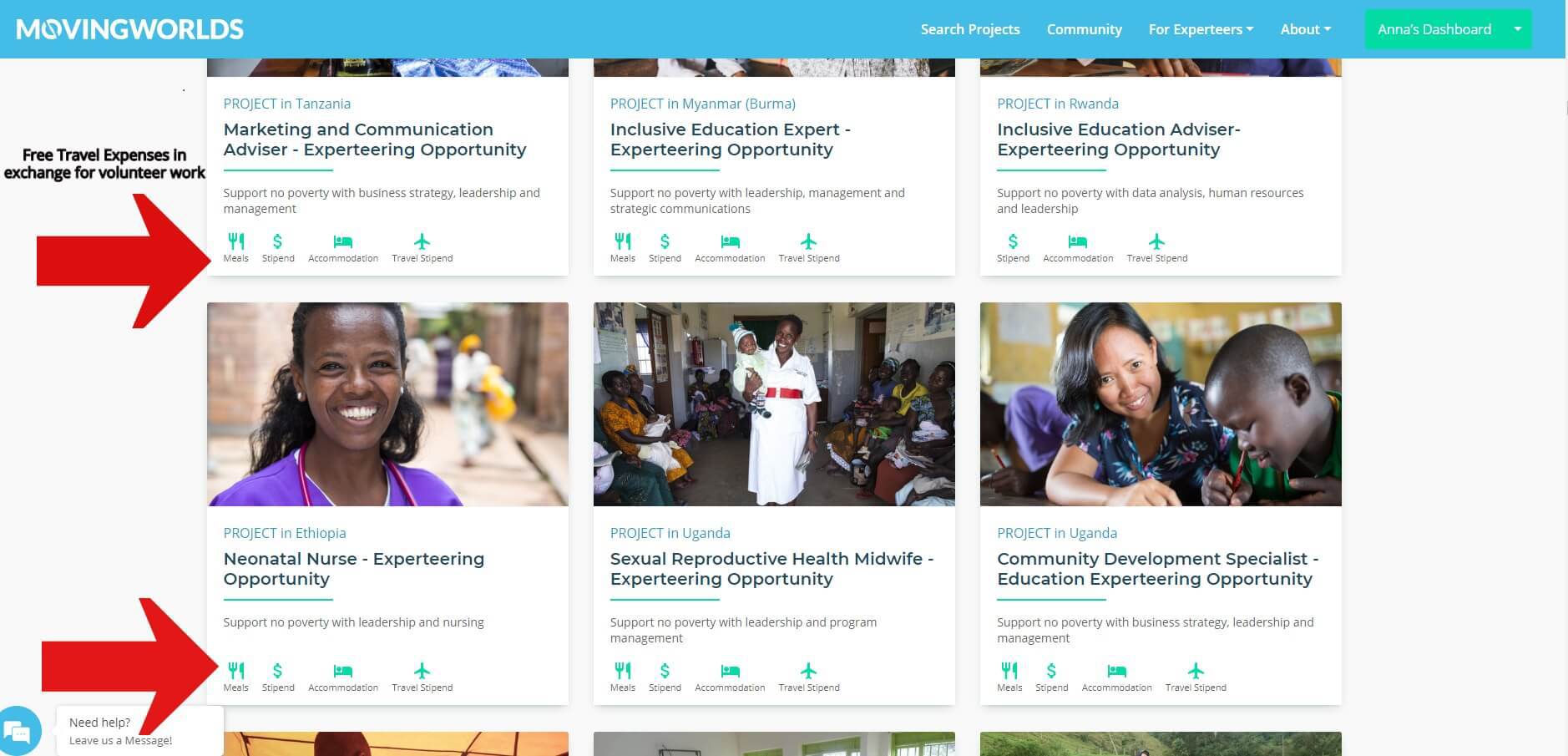
Photo: Screenshot of my personal account from MovingWorld’s paid membership. Green icons illustrate postings of various organizations looking for volunteers offering free travel expenses in exchange for work (food, compensation, accommodation, other travel expenses. Free travel expenses offered differs depending on organization.
Moving Worlds is a for-profit Social Purpose Corporation with the aim of providing people opportunities to make a sustainable impact in the world. Moving World connects skilled volunteers with social impact organizations and projects. Volunteers must create an online profile, choose/pay for a membership level and then apply to a preferred program/organization. Offered organizations and projects can extend different benefits to their volunteers. In exchange for expert skills, some projects can cover everything from meals to travel, accommodations, and even provide a stipend. Other programs/groups may only cover a few expenses or none at all. There is a matching process during which volunteers and host organizations and programs are assessed to ensure a proper fit for both volunteer and project. Volunteers are only required to pay for one of three annual program membership level fees. Membership levels start at 250USD/year. Skills and expertise requirements can vary but generally speaking work experience, professional certifications, long term expertise or even hobby level practice will often suffice for projects/organizations.
NOTE: Costs for various membership levels do increase significantly and can become prohibitive for some, although the basic membership level can provide an acceptable level of resources.
- Omprakash https://www.omprakash.org/
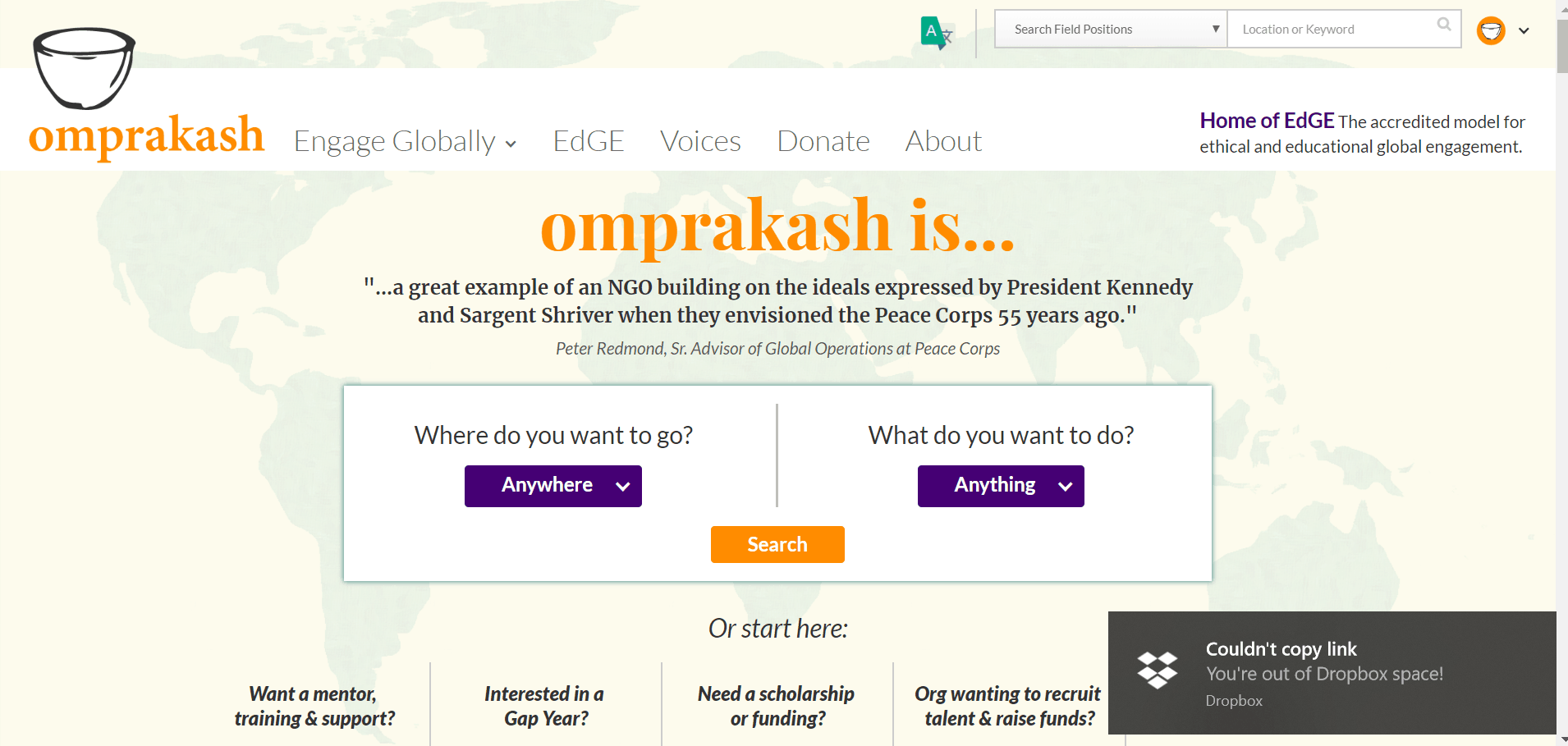 Omprakash is a completely web-based non-profit global engagement platform. The organization provides access to various tools and resources to support global humanitarian work. In addition to volunteering opportunities, Omprakash also has gap year/semester options, various global engagement grants, as well as their specialized Edge learning and mentoring program. For volunteers, Omprakash connects individuals to a network of vetted partners via an online database. Volunteers can then choose a program based on location, skills offered, or even a particular theme. Essentially, Omprakash facilitates the connection between volunteer and host organization but does not act as a go-between for volunteer placements. While there are no major direct costs or fees to Omprakash, costs of the specific volunteer opportunity can range. Similarly, requirements are different based on the organization and placement.
Omprakash is a completely web-based non-profit global engagement platform. The organization provides access to various tools and resources to support global humanitarian work. In addition to volunteering opportunities, Omprakash also has gap year/semester options, various global engagement grants, as well as their specialized Edge learning and mentoring program. For volunteers, Omprakash connects individuals to a network of vetted partners via an online database. Volunteers can then choose a program based on location, skills offered, or even a particular theme. Essentially, Omprakash facilitates the connection between volunteer and host organization but does not act as a go-between for volunteer placements. While there are no major direct costs or fees to Omprakash, costs of the specific volunteer opportunity can range. Similarly, requirements are different based on the organization and placement.
NOTE: Omprakash is one of the younger organizations, being operational since 2005. While their network is generally well vetted, it is important to keep in mind that this is a network of organizations and individual standards can vary.
- United Nations Volunteers https://www.unv.org/
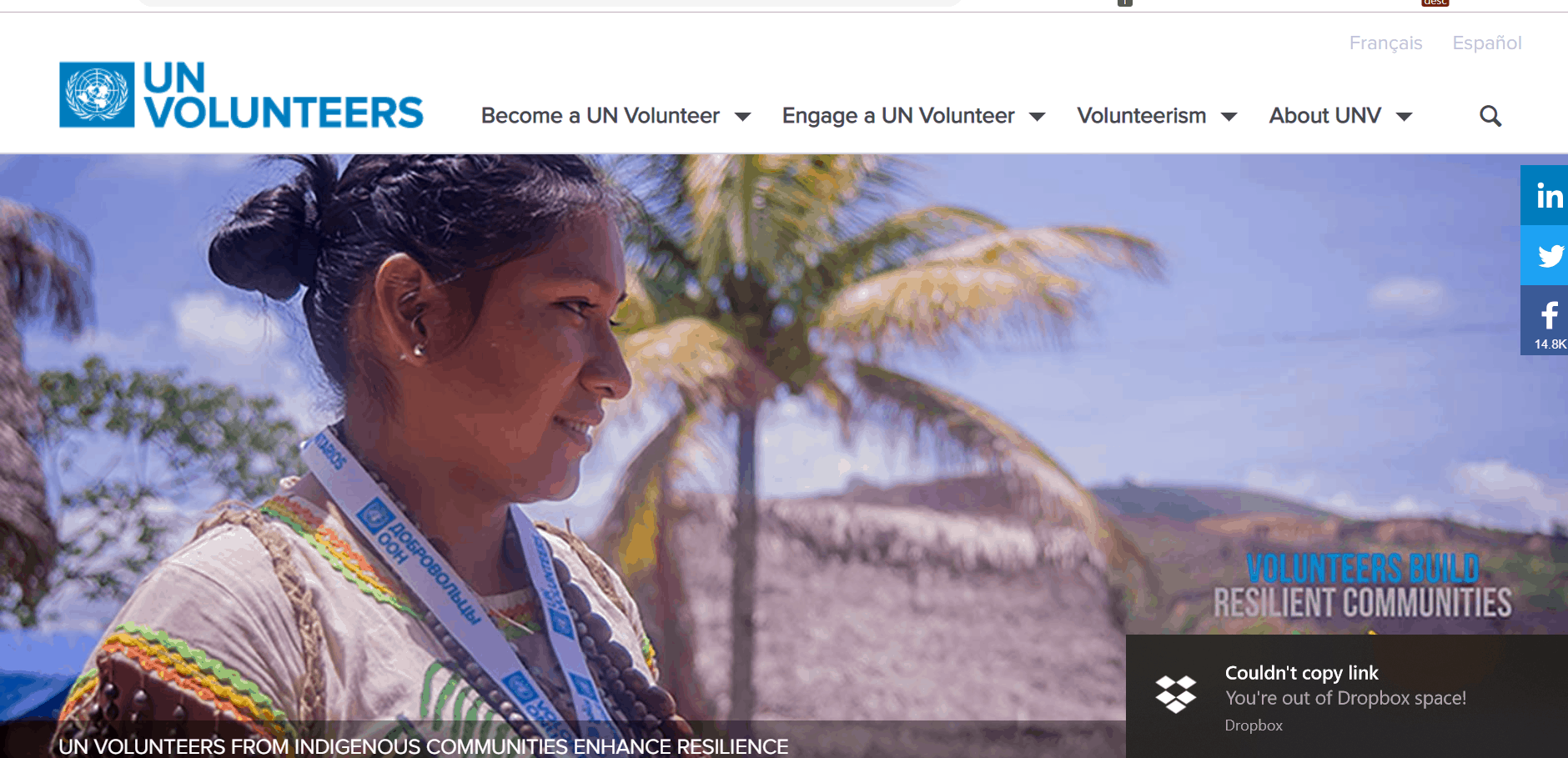 The United Nations has volunteer opportunities for skilled candidates. Candidates must be 25+ years old, have a university or higher technical diploma, two years of relevant experience, working knowledge of a core language (English, Spanish, or French). Volunteers register in their profile in the Global Talent Pool. When an assignment becomes available, pertinent candidate profiles are pulled, assessed and vetted specifically for that opportunity. Several candidates are usually assessed at the same time for one assignment. Assignments can range from 6-12+months. UN Volunteers assignments are generally afforded a small living allowance, annual leave, medical insurance, and costs of travel, accommodations and food are often covered as well. Volunteers must arrange their own travel visas and work permits when necessary. UN Volunteers also has options for online volunteering as well as volunteering within one’s own country. There are no major costs/fees that volunteers pay to the UN for assignments.
The United Nations has volunteer opportunities for skilled candidates. Candidates must be 25+ years old, have a university or higher technical diploma, two years of relevant experience, working knowledge of a core language (English, Spanish, or French). Volunteers register in their profile in the Global Talent Pool. When an assignment becomes available, pertinent candidate profiles are pulled, assessed and vetted specifically for that opportunity. Several candidates are usually assessed at the same time for one assignment. Assignments can range from 6-12+months. UN Volunteers assignments are generally afforded a small living allowance, annual leave, medical insurance, and costs of travel, accommodations and food are often covered as well. Volunteers must arrange their own travel visas and work permits when necessary. UN Volunteers also has options for online volunteering as well as volunteering within one’s own country. There are no major costs/fees that volunteers pay to the UN for assignments.
NOTE: UN Volunteers is a reliable organization with well-funded projects and supporting resources. However, it is important to note that positions are very competitive, and the organization looks for highly skilled candidates.
VSO is a non-profit organization with the express purpose of fighting global poverty. The organization provides skilled volunteers with opportunities to provide assistance in 24 developing countries in the work. VSO works with local partner groups to set up assignments and deploy volunteers. Volunteer requirements include at least 3 years in a relevant field, an academic degree or equivalent, clean criminal record as well as physical fitness standards for deployment. VSO assignments generally provide a basic living allowance, accommodations, medical coverage as well as training and support. The group also organizes work visas and return flights when applicable. Travel to assignments is usually covered by the volunteer. Volunteers look through a database of volunteer vacancies and send an application directly for the role they are interested in. Specific requirements and variables pertain directly to individual placement options. There are no major costs/fees to be paid to VSO for volunteer placement.
NOTE: Options are in developing countries and local standards can be difficult. Volunteers should make sure that they are physically and emotionally capable of handling such situations and locations. Pre-trip planning and training would be critical for many of these locations.
*For the complete list of volunteer organizations to consider, click on the banner below to access the list now!
2. GET YOUR COMPANY / EMPLOYER TO PAY FOR IT

Photo Credit: https://kazakh-tv.kz
You read that correctly – your employer might be able to fund your overseas trip!
A lot of employees don’t consider their employers or companies when looking for ways to travel for free. But a growing number of companies and employers are starting to see the benefit of international volunteering. Therefore, more companies are providing their employees with the opportunities to volunteer abroad.
Many companies like the idea of being sponsors for activities that showcase their corporate volunteer programs and efforts and/or their support for philanthropic missions. Your company may want to provide direct support for volunteer trips abroad. In fact, many large companies offer corporate volunteering programs or give their employees paid time off to volunteer.
Volunteering can add to an employee’s professional skills, it can be a great team-building exercise, it can aid in employee retention, it can strengthen ties to an overseas market, and great for the company’s overall involvement in social causes. Major companies like Salesforce, Timberland, Microsoft, Deloitte, Credit Suisse, Patagonia, IBM and PwC offer corporate volunteering programs or even pay employees to volunteer abroad — and they aren’t the only ones.
TAKE TIME OFF WORK, A SABBATICAL OR LEAVE OF ABSENCE: There are several possible options for taking time off of work to be able to pursue other, important goals and engage in life activities that we otherwise cannot engage in due to our job commitments. Many companies these days understand the importance of work/life balance and are often willing to allow for special trips, projects and personal engagements. Although such options are not often advertised within a company, it is often a matter of asking that can lead to the time off and sometimes even direct support for the intended endeavour.
Options for time off could include a formal sabbatical, leave without pay, education coverage, or even direct project/trip sponsorship. An employee can check to see if any of these options are available to them by simply reaching out to Human Resources (HR) as a first step. Even if HR does not have any official options on the books any of the following options are still possible, it never hurts to ask!
Sabbaticals are traditionally known in the education sector and are generally a formal time period away from work for other pursuits. Eligibility requirements can vary for formal sabbaticals but some companies do allow for these set time off periods. Another option might be to request Leave without Pay for any extended period of time away from work. Leave without Pay is commonly used in the corporate sector for individuals needing a longer period away (more than 2 weeks at a time). In such instances, usually, a direct manager can approve this request. Employees should also check to see if the company has any formal educational reimbursement programs. In that case, a short course in the destination location you are interested in could be partly covered by the company if an employee can couple the trip with the educational course.
HOW TO PITCH TO YOUR COMPANY: If you are employed, you can check with your company’s HR department to see if the company provides resources for employees who would like to volunteer abroad. If not, why not take the initiative and start a program yourself? You can be the one to start the corporate volunteering trend in your company. You could develop the project in detail, outline exactly what they intend to do with every specific listed including locations, organizations, and costs, and then present the project to leadership. The project proposal should clearly explain why this would be good for the company and what the company will get from it. If the project and benefits clearly outweigh the cost for the company, they may be apt to fund the whole project/travel themselves.
3. APPLY FOR A TRAVEL GRANT / SCHOLARSHIP

Photo: Vatican City, Rome, Italy
Although travel scholarships are mainly for students or professionals looking to improve or add practical experiences to their work, there are several travel scholarship grants for professionals who can receive stipends, grants and in some situations scholarships in certain situations.
Similarly, there are many writers’ and artists’ retreats that offer paid fellowships and opportunities to talented individuals. The Write Life recently published a list of 37 writer’s retreats to apply for in 2019 – and many of them offer scholarships, so be sure to contact the organizers and ask!
There are also many travel scholarships for volunteers, especially for volunteers with specific skill-sets. Some of these scholarships are for volunteers within a specific country, or for people who want to volunteer with specific organizations.
*For the complete list of volunteer organizations & travel grants, click on the banner below to access the list now!
4. FUNDRAISE (ETHICALLY) FOR YOUR TRAVELS ABROAD If you’re interested in travelling for a specific purpose and you can’t find a travel grant or scholarship, try fundraising (ethically).
If you’re interested in travelling for a specific purpose and you can’t find a travel grant or scholarship, try fundraising (ethically).
You can set up a crowdfunding campaign on a site like GoFundMe and share it on social media. You could also organize a fundraising event such as a lunch or dinner where the proceeds go towards your travels. Ask your local communities, including your family, friends, co-workers, to help out!
If you have great reasons for travelling – for example, if you’re a volunteer – you could even approach companies and ask for sponsorship. Write them a formal fundraising letter explaining why you’re travelling and why you need money. If you could offer them something in return, like a shout-out on your blog or social media, it would be great to mention that.
5. BECOME A TRAVEL BLOGGER OR DIGITAL NOMAD Thanks to the internet for making it possible to work remotely from anywhere in the world. It’s now easier than ever to start your own remote business straight from your laptop. You can join sites like Upwork, freelancer.com, or guru.com, among others where you can basically work from anywhere. That way you could combine volunteering, travel, and some freelance work to fund your trip.
Thanks to the internet for making it possible to work remotely from anywhere in the world. It’s now easier than ever to start your own remote business straight from your laptop. You can join sites like Upwork, freelancer.com, or guru.com, among others where you can basically work from anywhere. That way you could combine volunteering, travel, and some freelance work to fund your trip.
Another option is to start a travel blog and make an income from writing, photography, videos or even from having a Donate button on your blog so that your fans can donate directly to you. Many travel bloggers make a living from travelling the world. Travel influencers, can also travel for free, get paid or receive discounts in exchange for advertising their activities on social media. P.S. This harder than it sounds and takes a lot of dedication and time to build a genuine following to be able to receive free travel compensations!
As you travel, you can earn money from your laptop, wherever you may be in the world – all you need is a WiFi connection and a can-do attitude!
6. BECOME AN AUPAIR ABROAD Work as an au pair. An au pair lives with a host family in a foreign country for a specified period of time and receives room and board (sometimes a small stipend also), in exchange for performing some light housekeeping and childcare. Many times students work as au pairs while they study in a foreign country, but a young professional who wants to take a sabbatical could also qualify. Since au pair duties are typically not full time, you may have time in your schedule to do some volunteering in the host country.
Work as an au pair. An au pair lives with a host family in a foreign country for a specified period of time and receives room and board (sometimes a small stipend also), in exchange for performing some light housekeeping and childcare. Many times students work as au pairs while they study in a foreign country, but a young professional who wants to take a sabbatical could also qualify. Since au pair duties are typically not full time, you may have time in your schedule to do some volunteering in the host country.
Each family has their own requirements, so be sure to clarify these before committing to anything. You might have to have a driver’s license, first aid certification, or specific language skills to be hired by certain families. You’re usually expected to pass a criminal clearance.
If you’re interested in putting your nurturing skills to the test, AuPairWorld, Aupair.com and NewAupair are two of the many directories that link potential au pairs with host families.
7. WORK ON A FARM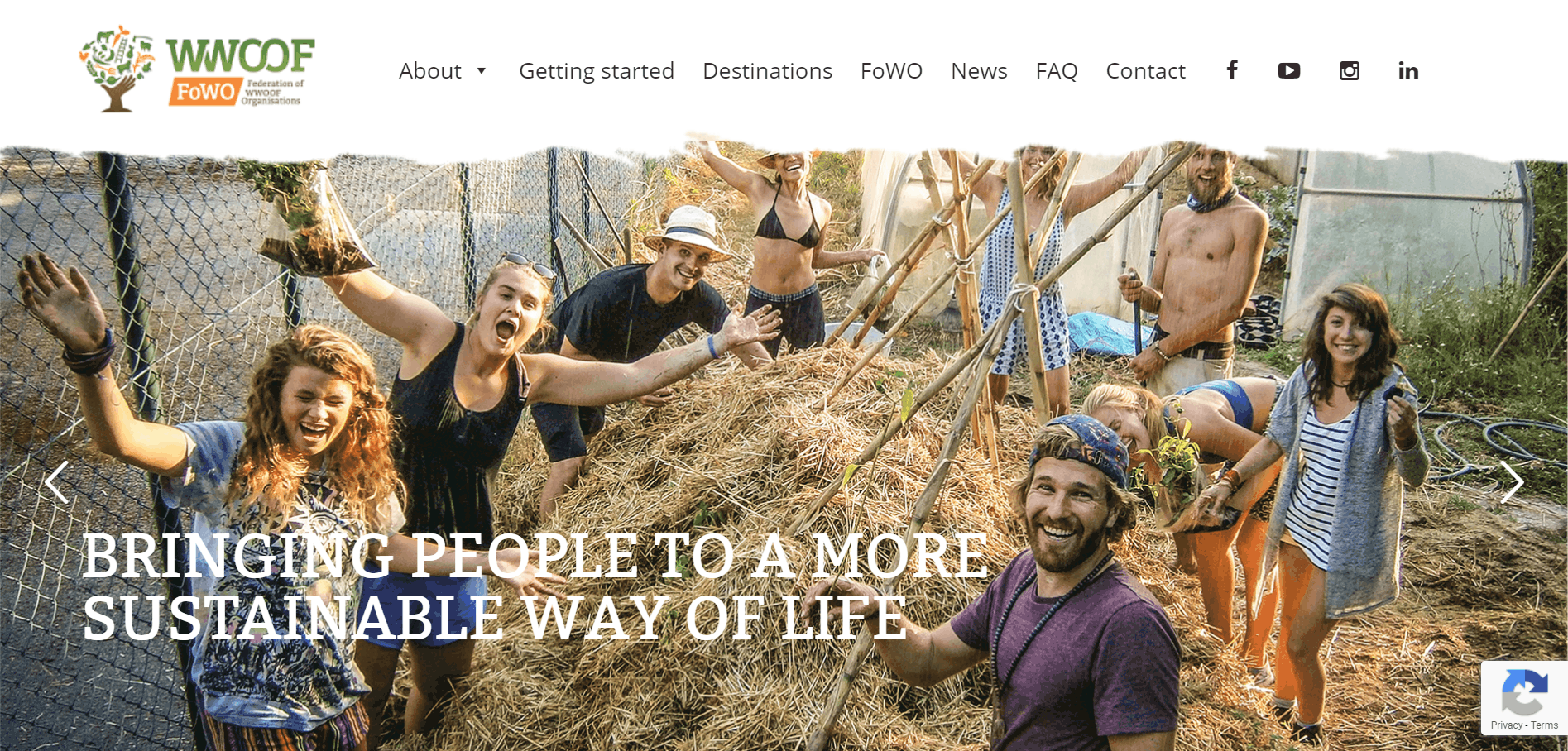 World Wide Opportunities on Organic Farms WWOOF is a company that matches volunteers with farm owners who are in need of extra hands on their farms and focusing on building a sustainable global community.
World Wide Opportunities on Organic Farms WWOOF is a company that matches volunteers with farm owners who are in need of extra hands on their farms and focusing on building a sustainable global community.
These jobs are usually not difficult; they range from gathering herbs to sowing seeds, making cheese, etc. and the jobs are usually for a few hours, which means you’ll have a lot of time to explore the city. In exchange for these services, the farm owners pay for your accommodation and feeding. But you might need to cover the flight costs yourself.

8. COUCHSURFING

Couchsurfing is an awesome way to connect with locals and get a bed/sofa for free! We can all appreciate a free bed for a night! “CouchSurfing is a hospitality and social networking service accessible via a website and mobile app. Members can use the service to arrange homestays, offer lodging and hospitality, and join events such as “Couch Crashes”. The platform is a gift economy; hosts are not allowed to charge for lodging.”
Check out 10 Reasons Why You Should Try CouchSurfing!
For more information on how to choose the right (ethical) volunteer organization for your needs, click here!
*PIN- IT! If you like this post and want to keep it for future reference, don’t forget to pin the image/s below on Pinterest!



